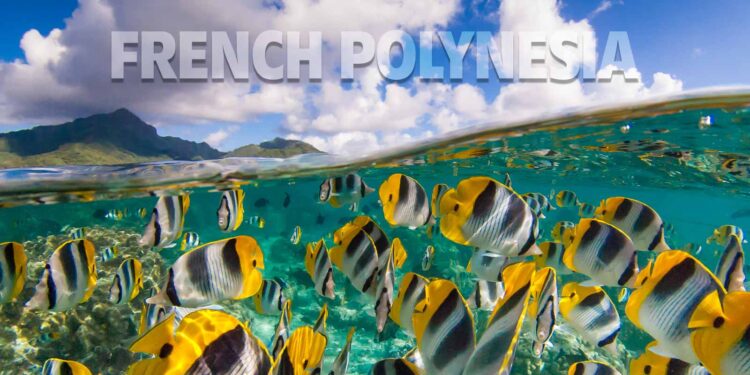Business Aircraft Ops to French Polynesia – Part 2: Permits & Requirements

This business aviation blog post continues from our article last week, entitled “Business Aircraft Ops to French Polynesia – Part 1; Airports & Ground Handling.”
Landing permits are needed for general aviation (GA) operations to French Polynesia. Charter operators should be aware of additional lead time and documentation requirements. Documentation mandates are more comprehensive and stringent for charter operations to French Polynesia.
The following is an overview of what you need to know:
1. Landing permits
Landing permits are required in French Polynesia for both private non-revenue and charter (non-scheduled commercial) operations. Official permits lead time is three business days for private non-revenue permits and five business days for charter permits. Short notice requests are possible, at Civil Aviation Authority’s (CAA’s) discretion. CAA processes landing permits during normal weekday office hours, but not on weekends or holidays. In French Polynesia, CAA processes landing permits the same way that CAA in France does, and with the same requirements.
2. Permit validity
Landing permits are valid for the Zulu day. Schedule changes outside of this window, and any changes to crew/passenger information or flight origin, require permit revisions. If you’re changing aircraft tail number a new permit request must be submitted. For schedule revisions to a later operation date, or crew/passenger changes, your permit number will remain the same. In the event of earlier operation, origin/destination change or a tail number change a new permit number may be issued.
3. Documentation for charter permits
Landing permit documentation requirements are more involved for charter permits and include the following:
- Air Operator’s Certificate
- Aircraft Radio Station License
- Registration Certificate
- Airworthiness Certificate
- Worldwide Insurance Certificate
- French Operating Permit Technical Questionnaire
- Operations Specification indicating MNPS Authorization
- Operations Specification showing MEL approval for the specific aircraft (Ops Spec D-095)
For a full list of requirements, forms and documents, please contact your trip support provider.
4. Visa requirements
Visas for French Polynesia are necessary for certain nationalities. It’s important to confirm any applicable requirements with your trip support provider prior to travel.
5. Crew documentation/paperwork
Information on all crew members should be forwarded to your ground handler prior to arrival/departure. Required information includes full name, date of birth, place of birth, nationality, flight or tail number and date of operation.
6. Compliance checks on arrival
Airport authorities in French Polynesia have been known to review aircraft and crew paperwork upon arrival. This verification process includes reviewing that the pilot in command (PIC) is type rated for the aircraft, possesses a first class medical and is not age 65 or over in the case of a charter flight. Best practice is for operators to have all required documentation ready and available, in case it’s requested by authorities on arrival.
5/17/2017: updated by author
7. Age 60 and 65 restrictions
Pilots who have reached 65 years of age may not fly as PIC on charter flights to/from French Polynesia. Crew 65 and over may act as an SIC as long as long as their licensing state recognizes their license as valid. This restriction doesn’t apply to private non-revenue flights.
5/17/2017: updated by author
8. Crew swap considerations
All GA crew swaps, via commercial airline in/out of NTAA, are subject to special procedures. Crew positioning to French Polynesia by commercial carrier must submit a crew immigration form to the customs, immigration, and quarantine (CIQ) authorities no less than 24 hours prior to arrival. This form must be completed and submitted by your local aircraft handler. Crew who arrive on a private/charter aircraft, but depart the islands on a commercial carrier, must show immigration authorities their commercial airline ticket at time of arrival.
9. Agricultural restrictions
It’s always important to confirm, with local agriculture authorities, what food items may or may not be permitted to bring into the country. There are various restrictions to be mindful of in terms of non-perishable on board catering. French Polynesia is strict on international trash disposal and quarantine regulations.
Conclusion
Particularly for charter operations to French Polynesia crew and aircraft documentation requirements can be somewhat unique. It’s recommended that operators double check all applicable documentation requirements with their 3rd-party provider prior to day of operation.
Questions?
If you have any questions about this article or would like assistance planning your next trip to French Polynesia, contact me at markhudson@univ-wea.com.




